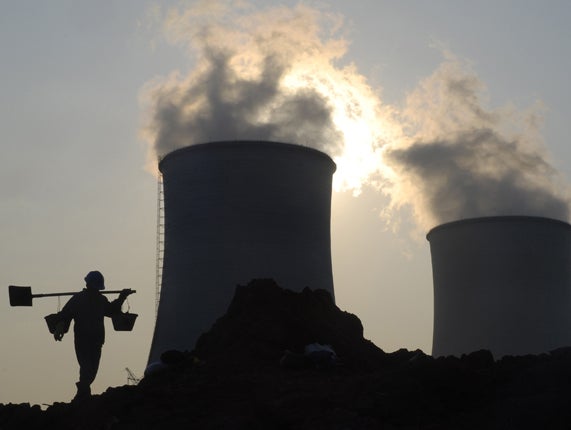Copenhagen comes down to a numbers game
Michael McCarthy on the battle over emissions cuts that is dividing the world

They call them square brackets – the pieces of text about which negotiators have not yet agreed, and so are bracketed off. And yesterday at the UN Climate Conference in Copenhagen, the most important square brackets in history were revealed.
They showed the upper and lower limits of the world's ambitions to cut the emissions of carbon dioxide which are causing climate change. They are vastly different, and imply enormous differences in the scale of effort involved, yet beginning today, ministers from more than 190 countries have less than a week to choose between them.
For the agreement to fight global warming which the international community hopes to sign next Friday, with 115 world leaders from Barack Obama down smiling and shaking hands on it in the Danish capital, has to have numbers in – but which ones?
Take the medium-term target for cutting CO2 emissions. Should industrialised countries like Britain cut them by at least [25-40] [in the order of 30] [40] [45] per cent by 1990 levels by 2020?
Or take the long-term target for all countries to scale back CO2. Should parties collectively reduce global emissions by at least [50] [85] [95] per cent from 1990 levels by 2020? Or if it's just the rich countries by themselves and their long-term targets, should they reduce emissions by [75-85] [at least 80-95] [more than 95] per cent by the same date? Over it all we have the ultimate ambition – the proposal that the increase in global average temperatures above pre-industrial levels ought not to exceed [2 degrees C] [1.5 degrees C].
Never in history have such momentous choices for all our futures been encapsulated in a few rows of adjacent punctuation marks, which emerged yesterday when the draft text for a potential Copenhagen agreement was published.
Many observers feel that the choice between the upper and lower brackets represents the choice between acting effectively to save the world and not doing so, yet there is no guarantee that in the next six days of intensive horse-trading between ministers and officials from 192 countries, the effective route will be the one that is chosen.
For the greater the ambition to cut carbon, the greater the transformation of society that will be necessary, and the more difficult the options that the politicians have to sell to their voters at home.
With all the targets for emissions cuts, the highest proposals come from the Association of Small Island States, such as Tuvalu in the Pacific, low-lying nations which are in the front-line of climate change as they are imminently threatened by rising waters. Similarly, the target to keep the global temperature rise down, accepted as C, now has a much more radical and demanding alternative – 1.5C – and this too is a small island states proposal.
In general, the text released yesterday, two years after the process of drawing it up was launched at the UN climate conference in Bali, Indonesia, reflects the scale of what the world needs to do to bring global warming to a halt – at the upper end of the choices. "It's good that it's out there, but a lot remains to be done," said Antonio Hill of Oxfam.
However, even the final form the agreement will take is far from clear. The meeting in Denmark may end with not one accord, but two.
It looks increasingly likely that the present international climate agreement, the 1997 Kyoto protocol, will be continued with a new "commitment period" for the rich industrialised countries, lasting until 2018 or 2020, during which they will make fresh pledges of emissions cuts in the range of 30 to 45 per cent of 1990 levels by 2020.
This might run alongside a new "Copenhagen protocol" which would do what Kyoto does not – bring in the US, and commit the developing nations such as China and India to begin carbon reductions of their own, initially in the order of 15-30 per cent away from the present "business as usual" growth rate of their economies, although that figure is, as you might guess, in square brackets.
Britain, the US and other developed nations would prefer a single new agreement which would incorporate the main elements of Kyoto. There has been fierce resistance to this from the developing world, as Kyoto is legally-binding on the rich countries and commits developing nations to nothing. The developing nations are very reluctant to give Kyoto up.
Draft texts have been released in Copenhagen for both alternatives – an extended Kyoto, and a new agreement. The latter would only be politically rather than legally binding in the first instance.
Getting any sort of agreement is not yet a done deal, Britain's Energy and Climate Change Secretary, Ed Miliband, currently leading the British negotiating team in Copenhagen, said last night.
"This remains tough," he said. "It's tough in process terms, because you've got a hundred and something leaders all arriving on Thursday, and they need to get to an agreement by the time they leave, and it is very complicated. And it's tough in substance terms because the world is trying to do what it has never done before, which is to peak global emission. This is absolutely not a done deal. It remains in the balance. There is political will, but it is not a done deal."
Join our commenting forum
Join thought-provoking conversations, follow other Independent readers and see their replies
0Comments